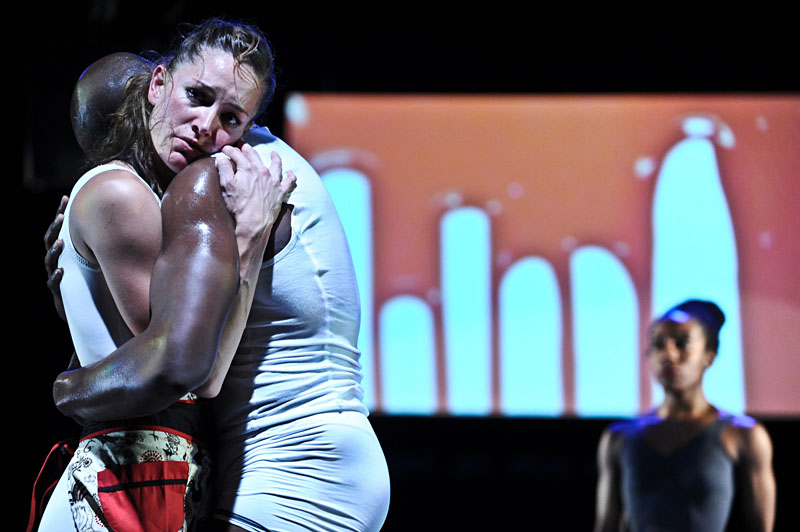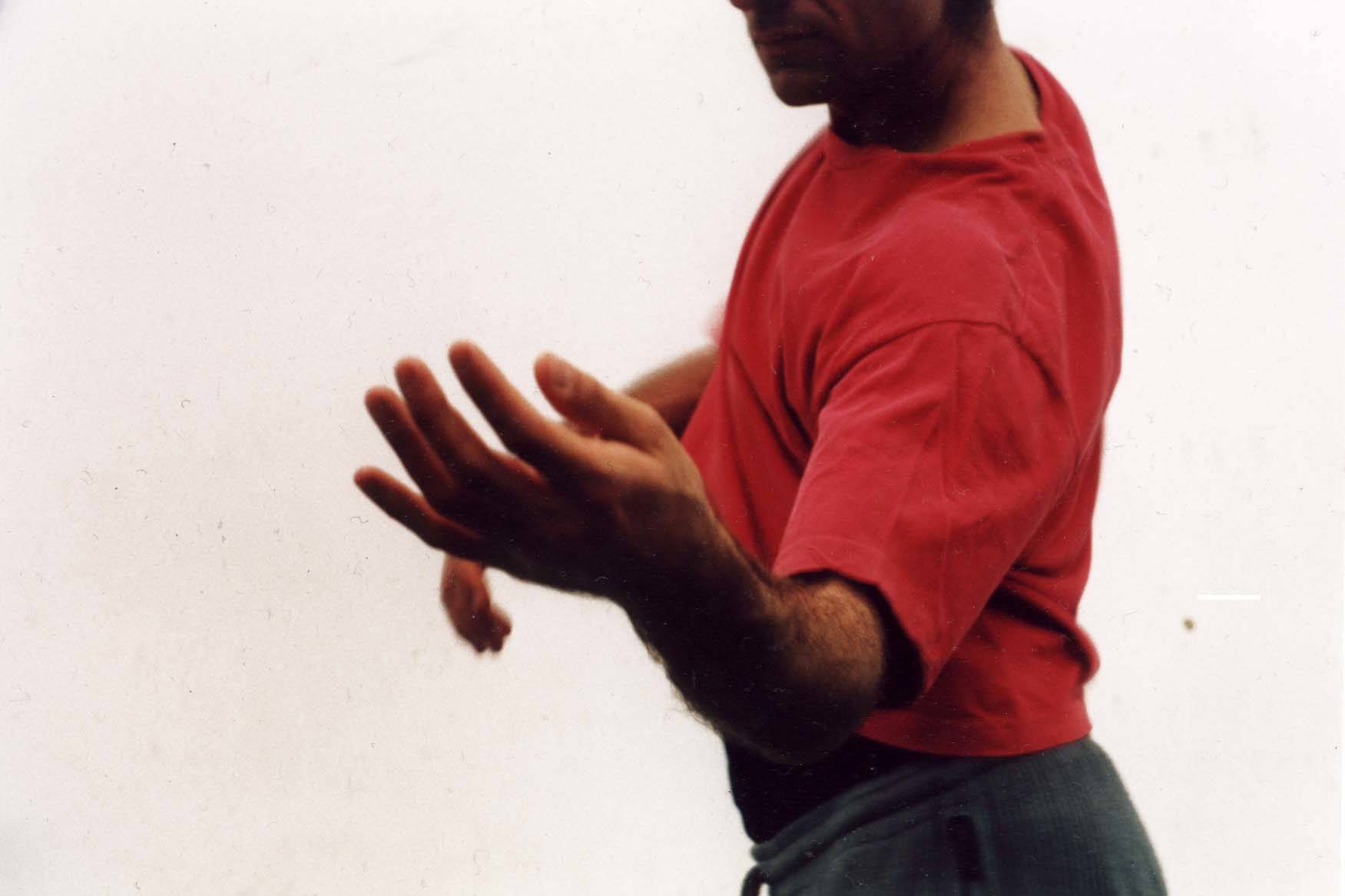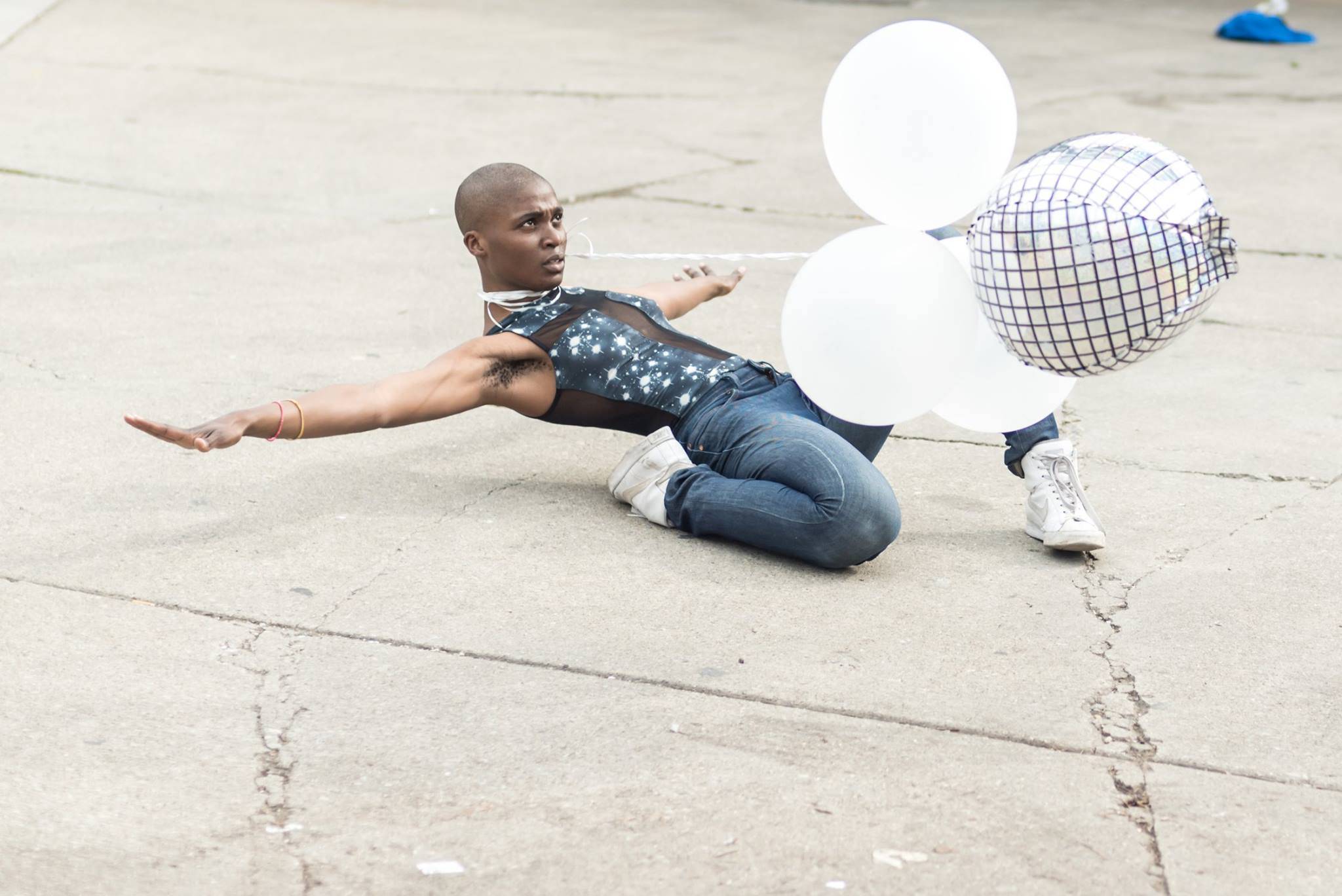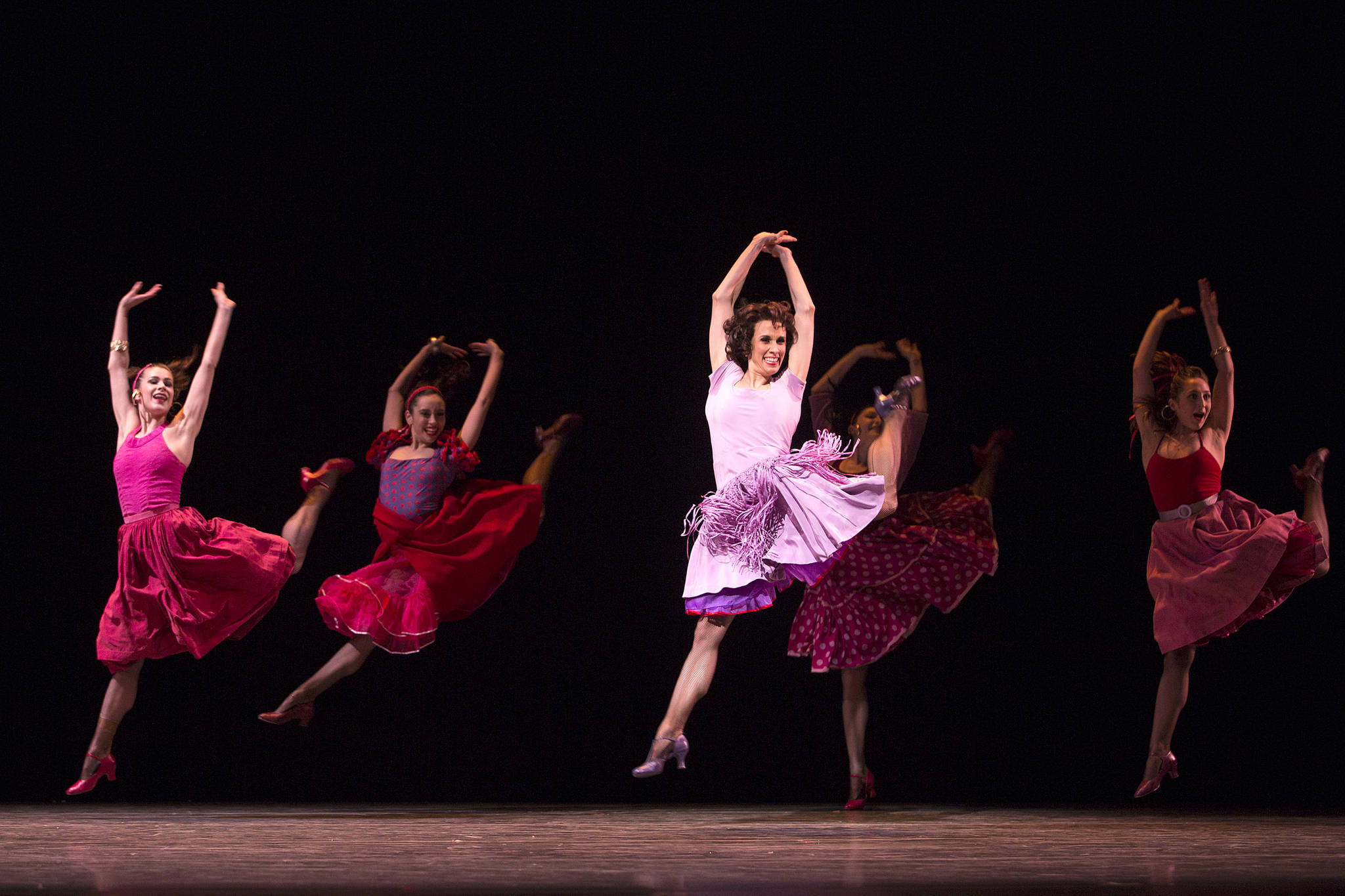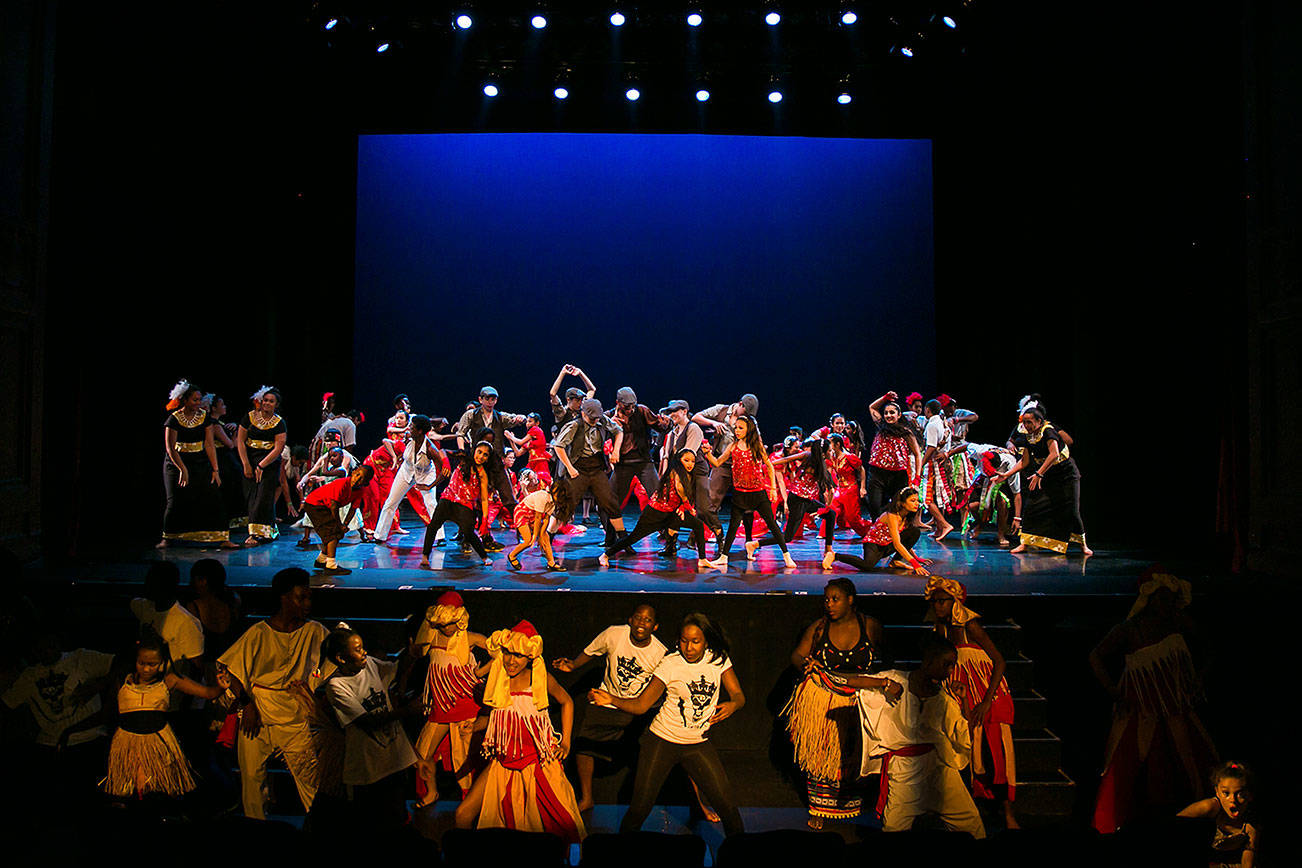Donald Byrd’s new season at Spectrum Dance Theater is supposed to be all about love, but there’s certainly no romance in this opening program. Instead, he’s starting in his typical style with a hyper-physical, dramatic confrontation about domestic abuse. Perhaps things will get more hopeful from here.
The choreography for The Beast is as in-your-face as its title. Dancers practically vibrate just sitting still. When they actually move, they almost explode. In a series of vignettes following a couple from marriage to murder, Byrd touches on most of our assumptions about the volatile cycle of love and resentment underlying domestic violence. The movement imagery is straightforward, almost simple: The Groom hauls the Bride around the stage; the Bride gives birth to a sack full of baby dolls. Bullhorns announce the different acts. This is not subtle stuff.
First performed in 1996, The Beast is full of high-intensity ballet technique, but the virtuosity borders on violence, with crotch-splitting extensions and whipping turns piling on top of themselves. This pounding kinesthesia can be overwhelming; the hour-long show threatens to devolve into chaos. Yet Byrd keeps our attention focused on the developing domestic tragedy; credit also goes to the dancers, many of them new to the company this year. Kate Monthy and Donald Jones Jr., as the Bride and Groom, probably have the hardest jobs here, but they’re well supported by the ensemble.
If The Beast‘s confrontational tone recalls Bertolt Brecht, Andy Teirstein’s score also suggests Kurt Weill, including the use of sprechstimme for the Groom. Jones and the rest of the cast do a remarkably good job with that singing/talking style, but the explanatory text can undermine the dancers’ ability to evoke feelings deeper than words. That’s the dilemma for The Beast—it’s an artwork in service of an idea. (One that might be better articulated in other media.)
In his preshow comments, Byrd acknowledges that this is difficult stuff to watch, and that it would be “OK not to like it.” But, really, are we supposed to “like” a work about domestic abuse, or are we supposed to be moved by it?
